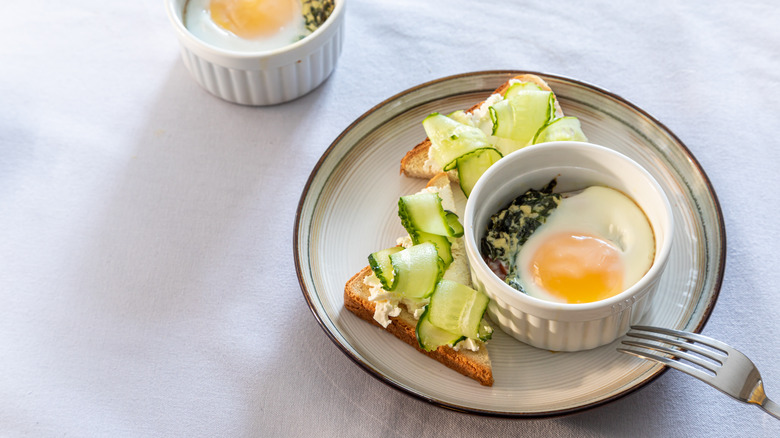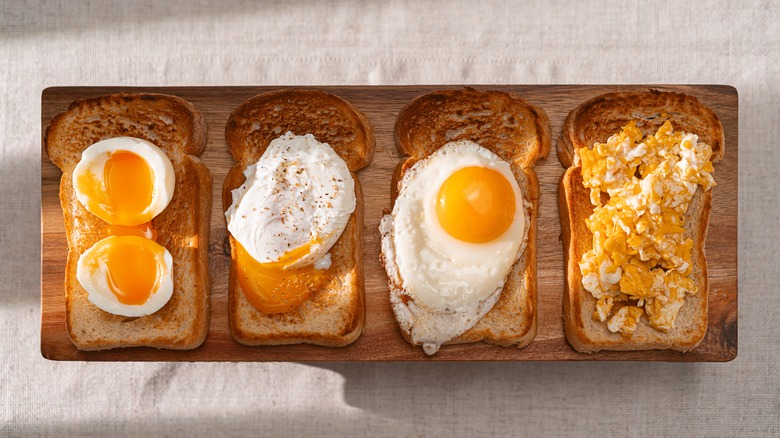How To Eat Your Eggs If You Want To Pretend You're A Dying Napolean
For the first 10 years of his reign, French Emperor Napoleon Bonaparte was a force to be reckoned with. According to History, he took control of most of Europe by 1810, and he held his position until invading Russia, thus leading to his 1814 exile to Elba. Europe hadn't seen the last of him, however; he made his (unsuccessful) return a year later before once again being exiled, this time to Saint Helena. All in all, his power hungriness led to his downfall, though he still accomplished many great things for the continent while serving.
As authoritative as Bonaparte was, he didn't feed his army as well as his funds allowed (via NPR). Those marching alongside him during the Battle of Waterloo chowed down on "Soup, boiled beef, a roasted joint and some vegetables; no dessert." As for himself, he made sure to enjoy top-notch food long after he lost the crown. In fact, he was eating exquisitely up until his dying day.
His last meal was full of breakfast specialties
In 1821 at 52 years of age Napoleon Bonaparte died of supposed stomach cancer. Before his death, though, he enjoyed a very specific breakfast, right down to the type of eggs he preferred the best. According to Cake, Bonaparte indulged in shirred eggs with cream; per Food Republic, shirred eggs are typically cracked into a ramekin, decorated with heavy cream and butter, and baked until the whites have set. Accompanying the eggs, he also ate bacon chops, liver, garlic toast with roasted tomatoes, and sautéed kidneys in sherry.
Although shirred eggs were his breakfast go-to, they weren't his all-time favorite food. Revealed in a book titled "Napoleon in America" by Shannon Selin, Bonaparte mostly enjoyed Chicken Marengo, beans, lentils, roast breast of mutton, and roast chicken (per Napoleon's valet Louis Constant Wairy). Chicken Marengo is likely named after Bonaparte's Battle of Marengo victory, and its ingredients are simple: seasoned chicken braised in white wine and tomatoes, according to Pardon your French.

